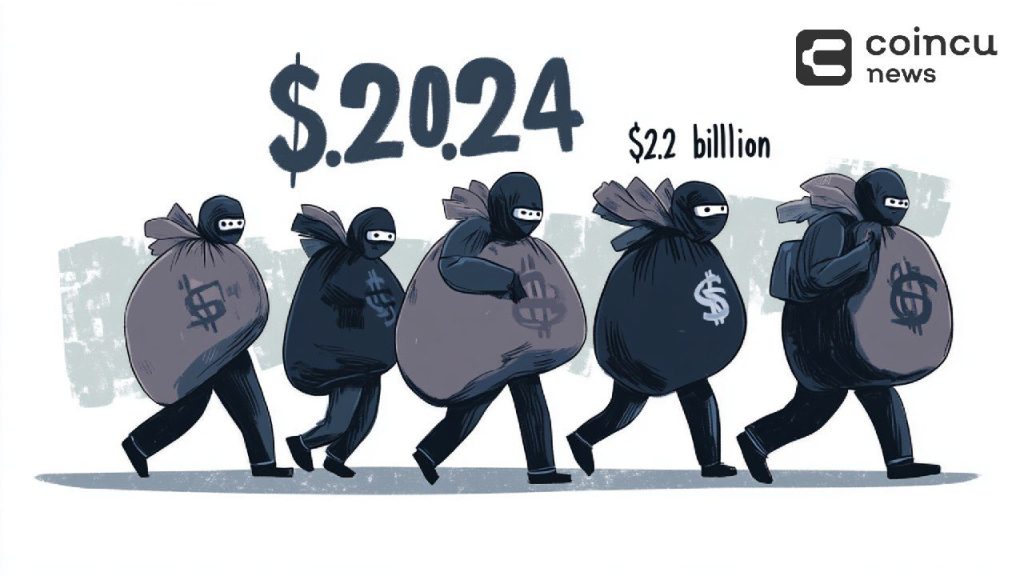Key Points:
- Crypto hacks in 2024 surged 22%, with $2.2 billion stolen, affecting centralized exchanges and DeFi protocols, and exposing critical vulnerabilities.
- Notable incidents included $305M from DMM Bitcoin, $234.9M from WazirX, and $62.5M from Munchables, with Lazarus Group suspected in key attacks.
Crypto hacks in 2024 stole nearly $2.2 billion, up 22% YOY, targeting centralized exchanges and DeFi protocols, with state-sponsored attacks like Lazarus involved.

DMM Bitcoin and the Rise of High-Value Exploits
In 2024, DMM Bitcoin was one of the high-profile cases to incur losses amounting to $300 million due to vulnerabilities, raising several questions regarding the security of digital assets. More recently, WazirX, one of the largest exchanges in India, was breached for $230 million in an exploit that questioned centralized exchange resilience in emerging markets.
Other high-profile exploits on smaller platforms this year include a $62 million attack against Munchables, proving that mid-sized projects are no exception from complex attacks. The $55 million loss resulting from the Dai whale being exploited and a $51 million breach of Radiant Capital also signal the constant presence of challenge points within DeFi security and how auditing and quick response mechanisms should be proactive, according to The Block.
Read more: North Korean Crypto Hackers Are Targeting ETF Companies for Scam
BingX and Emerging Challenges in DeFi
The $43 million exploit in BingX-a, a popular trading platform proved that trading protocols remain one of the juiciest targets for attackers. This case placed a premium on user education and diversified risk management to protect the assets of each customer from losses in turbulent times.
But it wasn’t just larger projects that suffered. Penpie lost $27 million, UwU Lend and Sonne Finance $20 million each, while M2 Exchange suffered a $14 million breach. “It just goes to show that nobody-from the largest exchanges to the tiny-fry-is safe, and the industry needs to get serious about better technical defenses and real insurance for affected users.
| DISCLAIMER: The information on this website is provided as general market commentary and does not constitute investment advice. We encourage you to do your own research before investing. |





















